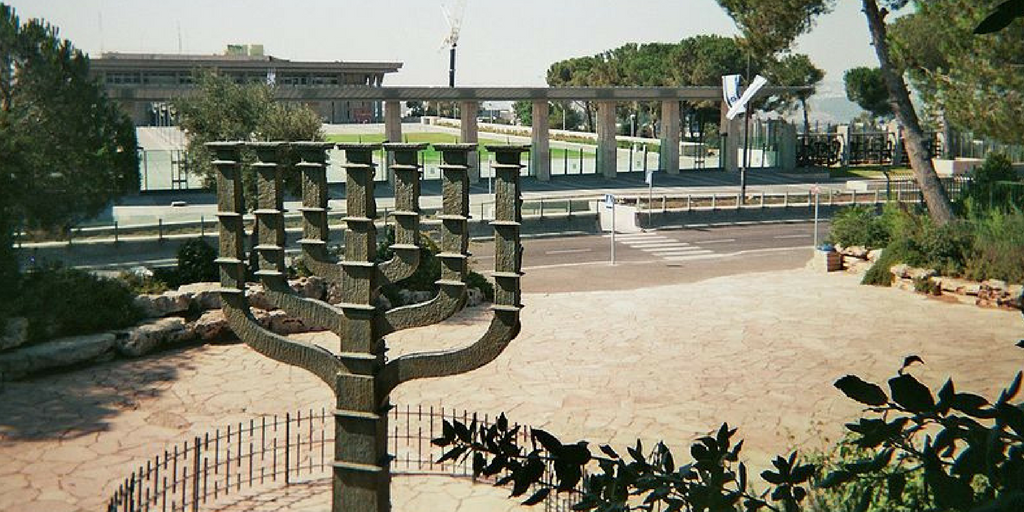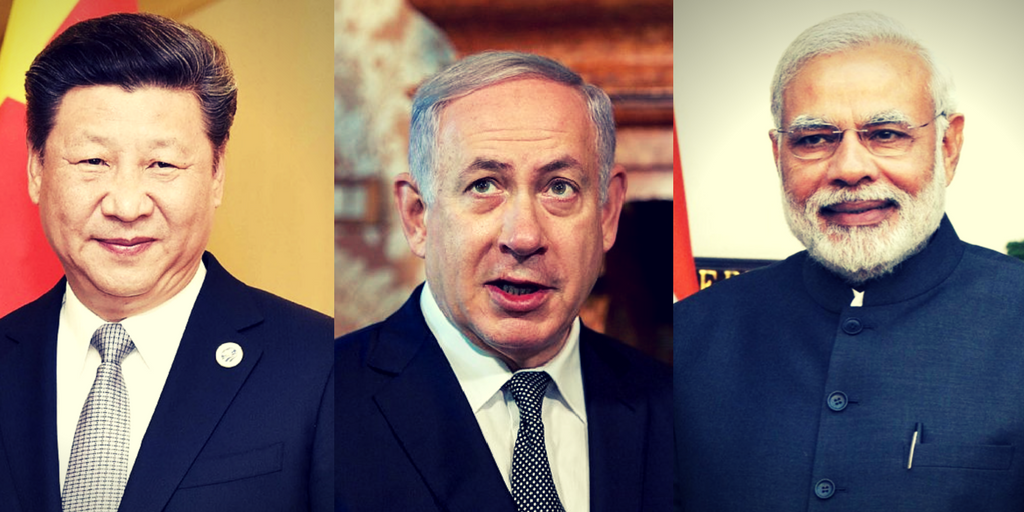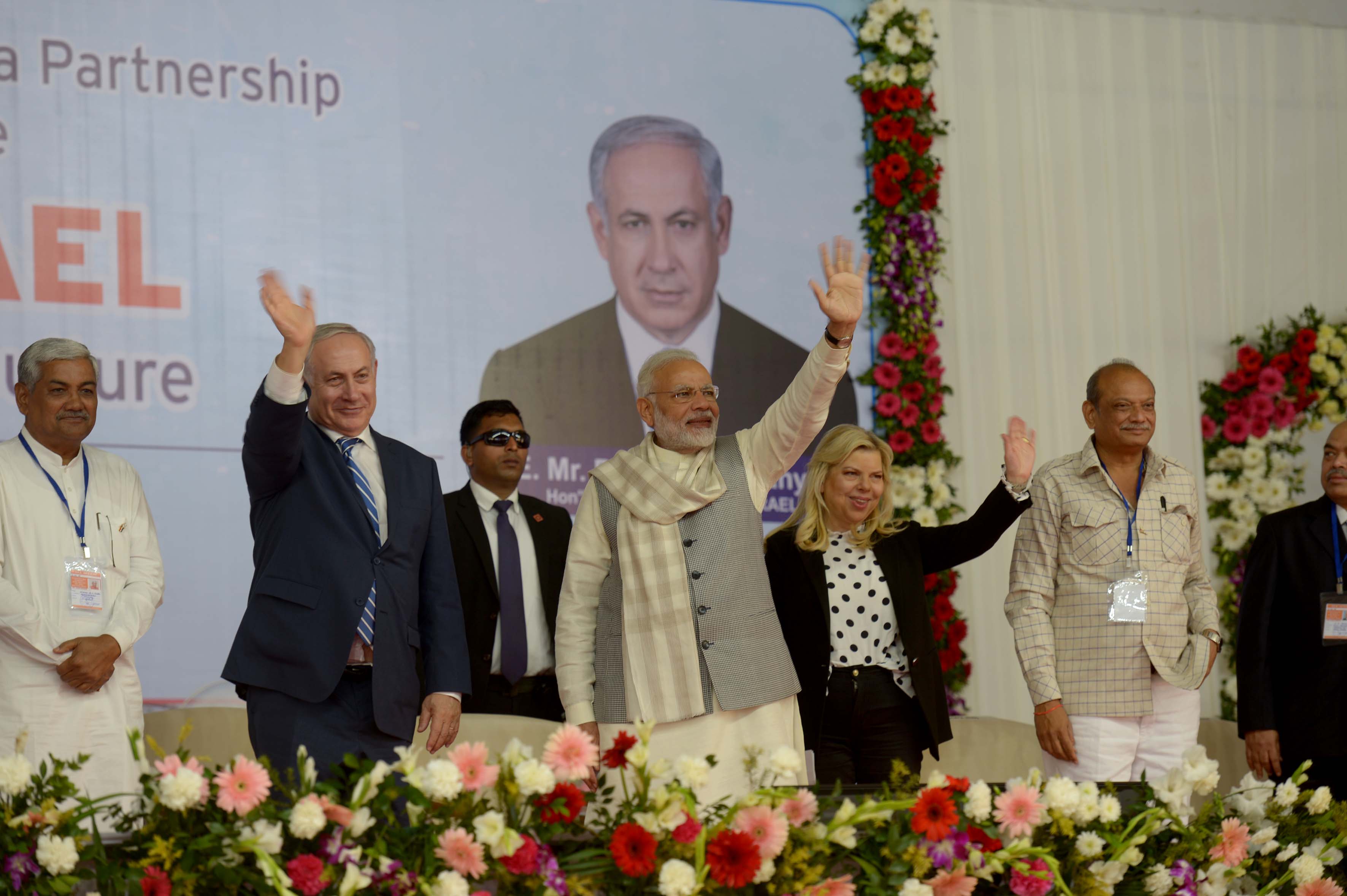In pursuit of bipartisanship AIPAC should strive to persuade “progressives”, not pander to them”; to convert them, not coopt them.
The progressive narrative for Israel is just as compelling and critical as the conservative one – AIPAC PresidentMort Fridman, March 5, 2018.
Almost two weeks have passed since the last AIPAC conference and much of the Israel advocacy world is still abuzz over the brouhaha created by the explicit endorsement by the organization’s leadership of two-statism—a position out of step with that of the current governments of both the US and Israel—who, at best, pay highly dubious lip service to the idea.
An ill-founded & ill-advised call.
In several respects the uproar is a little surprising. After all, almost identical sentiments were expressed by senior AIPAC officials at last year’s conference.
Thus, mid- way through his 2017 address, AIPAC CEO Howard Kohr called on the US to undertake “steps [that] could…create a climate that encourages the Palestinians to negotiate in pursuit of the goal we desire: a Jewish state of Israel living side by side in peace and security with a demilitarized Palestinian state ”.
This of course is virtually indistinguishable from the contentious call he made mid-way through his address this year, proclaiming: “We must all work toward that future: two states for two peoples. One Jewish with secure and defensible borders, and one Palestinian with its own flag and its own future.”
Last year, the alleged rationale of the embrace of the two-state formula was the endeavor to cultivate bipartisan support for Israel by avoiding alienating Democrats in Congress, who tend to support the idea.
This year, the professed rationale was essentially similar, with a slight shift of emphasis from retaining support of Democrat legislators to retaining the membership of “progressive” Jews from whom the two-state paradigm has almost sacred significance.
It is a call that was ill-founded and ill-advised last year—and is no less ill-founded and ill-advised this year.
Touting tyranny in pursuit of bipartisanship?
Indeed, immediately following the 2017 conference I published a column entitled, AIPAC – Touting tyranny in pursuit of bipartisanship, .
In it, I urged that “Instead of trying to resurrect the decrepit zombie of two-statism in pursuit of bipartisanship, AIPAC would do better to assist in promoting Zionist-compliant alternatives.”
After all, as I pointed out, as important as bipartisanship is, it is in fact a means to achieving a goal – not a goal in itself—and it is crucial that this distinction be kept clearly in mind.
Thus, in his 2017 address, Kohr declared: “…we are here because we are the bipartisan voice in America needed to help keep Israel safe in a dangerous world.
It is clear therefore that AIPAC’s objective is “keeping Israel safe in a dangerous world” and bipartisanship, a means to achieve it.
In my previous INTO THE FRAY column, I posted several graphic photos, showing how hopelessly vulnerable Israel would be if it relinquished the highlands of Judea-Samaria—the territory earmarked for a future Palestinian state—to Arab control.
They dramatically underscored how setting up such a state would make “keeping Israel safe” immensely more difficult and its world, vastly more “dangerous”—which also makes AIPAC’s endorsement of two-statism starkly self-contradictory—even self-obstructive.
Dangers dramatically depicted.
Significantly, these dangers were vividly articulated by none other than the late Shimon Peres in his Oslo-era book, “The New Middle East” (1993): “Even if the Palestinians agree that their state have no army or weapons, who can guarantee that a Palestinian army would not be mustered later to encamp at the gates of Jerusalem and the approaches to the lowlands? And if the Palestinian state would be unarmed, how would it block terrorist acts perpetrated by extremists, fundamentalists or irredentists?
Doesn’t get much clearer than that.
This echoes an earlier warning which Peres issued a decade-and-a half earlier, cautioningt: “The major issue is not [attaining] an agreement, but ensuring the actual implementation of the agreement in practice. The number of agreements which the Arabs have violated is no less than number which they have kept”. (Tomorrow is Now, Jerusalem: Keter, 1978, p. 48).
One can hardly believe that there is any cause for enhanced belief in Arab credibility since then—given the myriad of subsequent Arab breaches of agreements.
Accordingly, rather than endorsing the two-state formula in an effort to entice liberal leaning legislators to support Israel and to persuade progressive Jews to persist in their membership of the organization, AIPAC should embark on a totally different course
A particularly perverse political paradox
However, it is not only in the realm of security that promoting the two-state principle is counter-productive for AIPAC. If anything the moral case for rejecting it even more compelling.
Thus, perhaps one of the most perverse political paradoxes that prevails in the discourse on the Israel-Palestine conflict is the support of those who profess to cherish liberal values for the establishment of yet another homophobic, misogynistic Muslim-majority tyranny, whose hallmarks would be gender bias against women/girls, persecution of homosexuals, the prosecution of political dissidents and religious intolerance against non-Muslim faiths.
Indeed, no two-stater has, to the best of my knowledge, ever advanced a persuasive argument why the entity, which two-state advocates endorse, will be anything but the antithesis of the very values they invokes for its establishment.
Accordingly, given past precedents, present realities and future projections, it is difficult to see how two-state advocacy is anything other the endorsement of the establishment of a mega-Gaza overlooking greater Tel Aviv (see here) dominating Israel’s only international airport (see here) and abutting its major transport axes (see here). .
So unless one assumes the wildly improbable, implementation of the two-state principle—and the establishment of a Palestinian state—will culminate in realities that are the utter negation of the very values for which it was purportedly supported.
This is something that AIPAC must seriously consider in assessing its support of two-statism. For in its quest for bipartisanship by strongly endorsing the perverse two-state prescription in order to mollify miffed Democrats, AIPAC is in fact….
How should I put this? Touting tyranny?
Gaza: The ghoulish gruesome culmination of two-statism
Just how delusional and detached from reality “progressive” support for two-statism is, was underscored earlier this week by an attempt by unknown assailants to assassinate the prime minister of the Palestinian Authority who was visiting Gaza for the inauguration of a new, foreign funded water purification plant.
The event further underscored—if any additional proof were required—just how little progress has been made over the last quarter century in advancing the cause of Palestinian nationhood.
Indeed, despite:
– virtually worldwide political endorsement of their cause,
– highly favorable international media coverage,
– massive financial aid; and
– numerous compliant Israeli governments,
all the Palestinians have managed to establish is a corrupt kleptocracy in Judea-Samaria and a tyrannical theocracy in Gaza, with a dysfunctional polity—which, for over a decade, has been unable to conduct proper municipal elections, never mind legislative or presidential ones; and a feeble economy—crippled by corruption and cronyism with a bloated public sector and a miniscule private one, utterly dependent on foreign aid.
Nowhere is the appalling failure more evident than in Gaza, where the ill-fated experiment of foisting self-governance on the hapless Palestinian-Arabs was first attempted—amid much fanfare and celebration.
The dismal results are not difficult to discern.
Awash in flows of raw sewage, with virtually all natural sources of water undrinkable, with perennial and prolonged power outages disrupting the regular operation of desalination and water purification plants, with polluted beaches becoming a grave public health hazard, and with much of the enclave’s resources being diverted from the civilian sector to building military infrastructure to battle the hated “Zionist entity”—the outlook for the average Gazan looks bleak indeed, with little hope of any respite on the horizon.
For this, Gazans have two-staters—and two-staters alone—to blame.
The “progressives” utterly un-compelling narrative.
The jury is no longer out on two-statism!
When it first became the centerpiece of Israel’s Mid-East policy, back in the early 1900s—after being considered border-line treason for decades—there were two-state proponents, who promised that sweeping benefits would be reaped; and two-state opponents who warned of the dire dangers it would wreak.
Today—a quarter century later—the results are unequivocal. None of the benefits, which the proponents promised, have been fulfilled, while all the dangers, of which the opponents warned, have indeed materialized.
Thousands of Jews and Arabs have paid with their lives and limbs on the altar of the false deity of “progressive” political correctness.
So when the AIPAC president declares that “The progressive narrative for Israel is just as compelling…as the conservative one”, it it difficult to know on what he bases such a contention. For it is demonstrably untrue.
It is—to be charitable—un-compelling in terms of its security implications for Israel. It is un-compelling in terms of its moral ramifications. It is un-compelling in terms of its political pretensions. It is un-compelling in terms of its socio-economic outcomes—just ask the folk in Gaza. After, all it is they who bear the full brunt of “progressive” two-statism
Progressive poppycock
In a recent article, threateningly titled, AIPAC won’t win back progressives until it faces hard truths about Israel, two professed progressives, Jeremy Ben-Ami and Jill Jacobs, write: “the argument that ‘Israel’s security cannot be fully ensured and its promise cannot be fully realized until she is at peace with all her neighbors,’ which AIPAC’s CEO Howard Kohr shared with the crowd during his welcoming remarks, is one that we have each made time and again.”
Could it be that the authors are trapped in a time warp! Apparently they haven’t heard that Israel is doing fine in “realizing its promise”. On the cutting edge of nearly every field of human endeavor, with its GDP per capita overtaking a number of EU countries, its technology sought after worldwide, expanding its influence and exports in Asia and Africa…
Of course it would be more than intriguing how they would recommend Israel reach peace with all its neighbors. By surrendering the Golan to Syria?? (Just as well the “progressives didn’t prevail on that score). By withdrawing from Gaza and removing every vestige of Jewish presence. (Oh Yes. We did that.) Or by withdrawing to the international border with Lebanon (Drat! That didn’t work). Or by evacuating the entire Sinai—now being taken over by brutal Jihadi gangs?
Indeed, in the face of blatant balderdash, it is becoming increasingly difficult to reconcile calls for embracing a progressive narrative with genuine concern for the well-being of the Jewish nation-state—at least on planet Earth.
Persuade rather than pander; convert rather than coopt
As I mentioned earlier, the pursuit of bipartisanship is a worthy goal for AIPAC—but not if it means sacrificing its core mission to “help keep Israel safe in a dangerous world”.
Thus, in its endeavor to achieve its goal of bipartisan support for Israel, AIPAC should focus efforts on persuading “progressives” to forsake their regressive two-state agenda, rather than pandering to them by embracing it.
By highlighting two-statism’s perilous security implications, its pernicious moral ramifications and calamitous socio-economic consequences, AIPAC should convince “progressives” that two-statism is the utter negation of all the values they purport to cherish, and will result in precisely the realities they would wish to avoid.
Accordingly, AIPAC should seek bipartisanship by converting progressives—not co-opting them.
That is the only way its leadership can save this proud organization from sinking into irrelevance.








